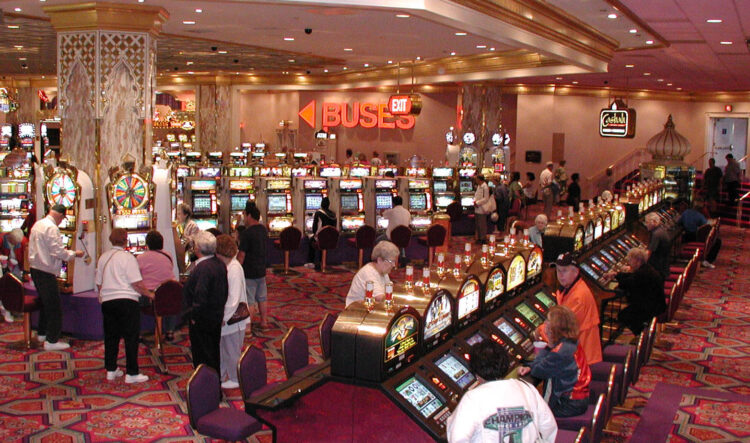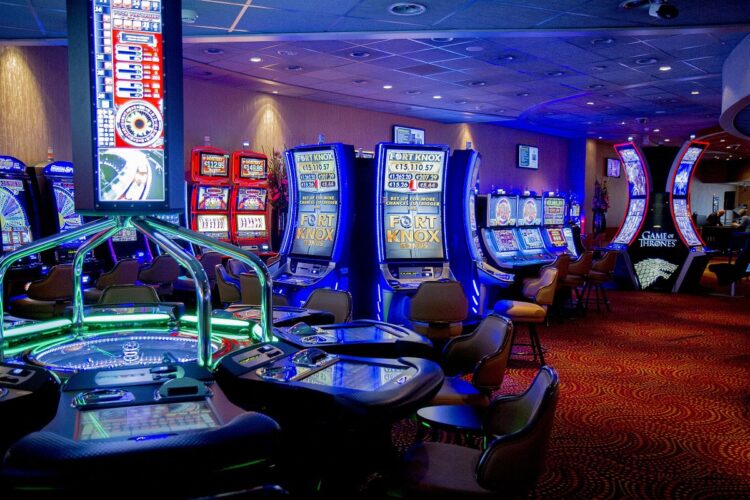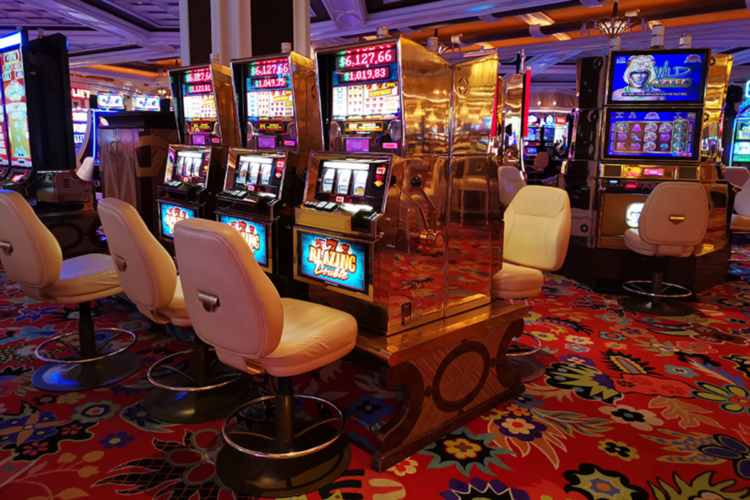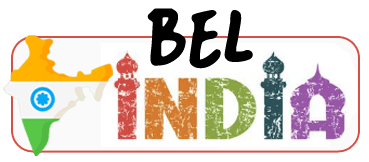Gambling, a fascinating form of entertainment, is a global phenomenon that has intrigued societies for centuries. Characterized by its unique blend of skill, strategy, and sheer luck, these habits can provide invaluable insights into societal behaviors and cultural inclinations across different nations.
Understanding these habits can unveil the distinctive historical, socioeconomic, and cultural aspects that shape them. In this comprehensive exploration, we invite you to journey with us across continents as we delve deeper into the intriguing world of gambling, exploring how countries worldwide interact with this ever-evolving industry.
Table of Contents
Gambling in Western Countries
United States

Source: en.wikipedia.org
Famed for its bright lights, glamor, and high stakes, the United States is often depicted as the epicenter of modern game. Cities like Las Vegas and Atlantic City have become synonymous with casino culture, their glittering facades offering a diverse array of gambling opportunities. From the high-roller poker rooms to the inviting whir of slot machines, casinos across the country are the heart and soul of the American wagreing scene.
In addition to casinos, other forms of gambling, such as lotteries and sports betting, have also cultivated substantial followings. Lotteries, regulated at the state level, have become an integral part of American life. Sports betting, while still a contentious issue in some states, has seen significant growth following the Supreme Court’s 2018 decision to overturn a federal ban.
United Kingdom
Steeped in history, betting and gambling have been entrenched in UK culture for centuries, from traditional horse racing to classic pub games. The UK has witnessed an exponential growth in online casinos in recent years. Virtual casinos, sports betting, poker, and bingo are all incredibly popular.
The shift towards online activities is complemented by stringent oversight by the UK Gambling Commission, ensuring that operators adhere to regulations designed to protect players and promote fair, transparent wagering.
Gambling in Eastern Countries
China
China presents a stark contrast to the open gambling culture of the West. Despite the government’s strict stance against it, the practice has deep roots in the country, tracing back to ancient dynastic eras where games of chance were widely popular.
In today’s China, only government-run lotteries are deemed legal, providing a state-sanctioned avenue for hopeful participants. Despite the strict regulations, an underground casino scene thrives, painting a complex picture of wagering in China.
Japan

Source: scmp.com
Japan offers a unique take on the industry, with Pachinko parlors – a blend of pinball and slots – dotting the urban landscape. Traditional casino games are generally illegal, reflecting the country’s historical aversion to the activity due to associated social issues.
However, the government recently passed a bill allowing the establishment of integrated resorts, which will include casinos, signaling a shift in policy and opening doors for a new gambling era.
European Countries
Germany
Germany, a country known for its practicality and orderliness, also embraces a robust gambling culture. State-run lotteries and casinos pepper the landscape, providing a variety of options for residents and tourists alike.
Germany recently legalized an online approach to wagering, acknowledging the changing tide of the industry and offering a new playground for the enthusiasts. The regulatory landscape is guided by the Interstate Treaty on Gambling, ensuring a well-regulated and fair environment for players.
Netherlands

Source: tripadvisor.co.uk
The Netherlands’ relationship with gambling stretches back hundreds of years, particularly in lotteries, which are deeply embedded in the nation’s history. In recent years, the Netherlands has expanded its laws to include online platforms, a move that has bolstered competition and diversified the market, providing Dutch gamblers with a broader spectrum of wagering options.
Asian Countries
Macau
Macau stands as a gleaming beacon in the world of wagering. Known as the “Gambling Capital of the World”, Macau’s casino-driven economy rakes in revenue surpassing even that of Las Vegas. The city is home to some of the world’s most prestigious casinos, offering high stakes games that attract high rollers from across the globe. Despite its small size, Macau’s influence on the global industry is significant.
South Korea
South Korea presents a regulated wagering environment, where the government keeps a tight rein on all activities. While most forms of wagering are prohibited for locals, exceptions include horse racing, boat racing, and the national lottery. Nevertheless, the advent of digital technology and the popularity of eSports have contributed to a rise in online casinos, a sector that operates in a somewhat legally gray area.
Gambling in Oceania
Australia

Source: nbcnews.com
Australia stands out for its pervasive gambling culture. “Pokies” or slot machines can be found in many public venues, and sports betting is a common pastime. The nation’s liberal approach to the activity, however, comes with its own set of challenges, including high rates of problem wagering.
The Australian government has implemented several regulations and responsible gambling initiatives to mitigate these issues and promote a healthier environment.
New Zealand
Gambling in New Zealand varies considerably, with the highest participation rates seen in lotteries and scratch cards, followed by electronic gaming machines, or “pokies”, and sports betting. The impact of this activity on the Maori community, the indigenous people of New Zealand, has been a significant concern, prompting the government to actively manage all activities and implement measures to prevent problem gambling.
Gambling in South America
Argentina
Argentina’s diverse gambling landscape features a strong lottery and casino industry. Casinos across the country offer a range of games such as roulette, blackjack, and punto banco, not to mention the ever-present slot online machines. However, as online casinos become more widespread, the issue of problem wagering and its socioeconomic consequences has become a point of concern.
Brazil

Source: focusgn.com
Brazil has a complex relationship with gambling, with most forms currently deemed illegal. Nevertheless, an underground scene thrives, and there are ongoing debates about the potential benefits and pitfalls of legalization and regulation. In recent years, the government has been considering bills to legalize certain forms of these acitivities, including casinos and online platforms.
Gambling in North America (Canada)
Canada boasts a rich and varied gambling scene, where provinces have the jurisdiction to regulate it within their borders. Popular forms of games include casinos, horse racing, sports betting, and online wagering. The dynamics of wagering regulations, however, vary widely from one province to another, resulting in a mosaic of different landscapes across the country.
Gambling in Africa
South Africa

Source: liveabout.com
South Africa boasts a vibrant gambling scene, with a well-established casino industry and a popular national lottery. Despite the popularity of this activity, the issue of problem gambling is a growing concern. The government has enacted comprehensive gambling legislation to protect players and mitigate the potential negative social implications.
Nigeria
In Nigeria, the rapid advancement of mobile technology has given rise to a sports betting boom. The convenience of mobile betting has attracted a younger demographic, transforming the country’s gambling landscape. However, as the industry expands, so do challenges related to regulation, player protection, and taxation.
Social and Cultural Factors Influencing Gambling Habits
Gambling practices worldwide are influenced by a combination of traditional, historical, socioeconomic, and cultural factors. How societies perceive luck and chance, wealth and prosperity, risk and reward, all contribute to shaping their lifestyle habits. These influences manifest differently across the globe, creating a rich tapestry of global gambling culture.

